- Home
- Anne Bishop
Lake Silence Page 7
Lake Silence Read online
Page 7
He went out the door. He wasn’t an Intuit like Julian, but he had a feeling that the man he remembered—the man who had been a damn good cop—wouldn’t let him go into trouble alone.
“You can take the shotgun,” he said when Julian got into the passenger seat.
“Which one of them called?” Julian asked.
Grimshaw pulled out of the parking space and made a U-turn to head for The Jumble, lights flashing and siren screaming. “My guess? The baby cop. Before Swinn sent me on my way, I saw a kid with the team who didn’t look old enough to be in CIU. Barely looked old enough to have graduated from the academy.”
“Swinn is his commanding officer. Why didn’t the kid call him?”
“Maybe because Swinn is his commanding officer.” Grimshaw concentrated on driving for a minute. Then he pulled a business card out of his shirt pocket. “Call Ilya Sanguinati and warn him not to take Vicki DeVine home until we know what’s going on.”
Julian took the card and pulled out his mobile phone.
“Mr. Sanguinati?” Julian said when the vampire answered the call. “There’s some trouble at The Jumble. Officer Grimshaw is on his way there now. Could you . . . I see.” Pause. “Yes, I understand. I appreciate the information.” He ended the call. The hand holding the mobile phone flopped into his lap.
Grimshaw spared a glance at his friend, who looked unnaturally pale. “What?”
“Mr. Sanguinati is taking Vicki to Silence Lodge. He said the Elders aren’t happy with humans at the moment, but the police will be safe enough to retrieve the survivor as long as no weapons are drawn.”
He barely checked the reflex to slam on the brakes. “Elders? Gods, Julian.”
When people spoke of the Others, they thought of the vampires or the ones who could shift to animal forms like Wolves and Bears and, yes, Crows. But as threats to humans went, those kinds of terra indigene paled in comparison to the terra indigene that were known as the Elders and the Elementals. They had been the killing force that had swept across the continent of Thaisia last summer—across the whole damn world. Unlike the shifters and vampires, who might let a human live if the encounter was peaceful, the Elders weren’t that tolerant—a fact every police officer who did highway patrol recognized. Those men traveled the roads through the wild country every single day, and every day there was the chance that something watching from the verge would decide not to let the human driving the noisy metal box with the flashing lights live to reach his destination.
“He say anything else?”
“He said you should request an ambulance or whatever vehicle carries the dead when police answer a call. And you should bring some body bags.”
Grimshaw slowed as he made the turn onto the gravel road that led to The Jumble’s main house. He cut the siren but could hear other sirens in the distance, coming closer. Backup. Help. He hoped.
They saw the unmarked car where it had landed just off the gravel road. What was left of a car. Something had smashed the trunk and roof, punched in the doors, broken all the windows, and ripped off the front tires. Made sure the vehicle—and the people—couldn’t escape.
“Let me out here,” Julian said. “I’ll see what I can do for anyone inside the car.”
“You’ll be in the open. Exposed,” Grimshaw protested.
“I won’t be carrying a weapon, so I should be safe enough.”
The baby cop was still up ahead, so they had to split up in case anyone in the car was still alive.
“Watch your back,” he said.
Julian opened the door but hesitated. “I have the feeling we’ll be all right as long as everyone remains calm and professional.”
And if fear makes someone twitchy? Didn’t need, or want, an answer to that question.
Julian got out and Grimshaw continued up to the house. When he saw the young officer standing with his back to the house’s front door, he put the car in PARK, touched the medal under his shirt, and whispered his prayer to Mikhos. Then he stepped out of the car, using the door as a shield while he looked around.
Man on the ground within sight of the house, not moving. The baby cop didn’t look injured—at least he wasn’t bleeding anywhere—but could be in shock.
Grimshaw stepped away from the car, closed the door, and approached the survivor. “Officer?”
“O-Osgood, sir. David Osgood.”
“You hurt?”
“No, sir. I was . . . I was just . . .”
Grimshaw held up a hand. “We’ll get to that. Anyone else around?”
An abrupt, hysterical laugh, quickly cut off.
“Caw.”
“Caw.” “Caw.” “Caw.”
One question answered but not in the way he wanted.
“Stay there.” Not that he expected the kid to move while he approached the man on the ground.
He didn’t know when he stopped moving. He just gradually realized his feet had frozen in place once his brain understood what he was seeing.
The CIU officer lay facedown. Grimshaw clearly saw the back of the man’s sports jacket and the back of his head. He also saw the shoes that were pointing up.
Spinal injury. Gods above and below.
After that moment of shock, he approached the man to check for a pulse—and hoped he wouldn’t find one.
Satisfied that he wasn’t leaving an injured man, he returned to Osgood and led the young officer to his vehicle. Once inside the car with the doors locked—as if a locked door would provide any kind of safety—he called Captain Hargreaves to let him know backup wasn’t required but another CIU team would be needed to investigate the reason for the attack—or at least to take possession of the damaged vehicle.
He finished the call to Hargreaves and turned in his seat to look at Osgood. “Can you tell me what happened?” They would need to take a formal statement, and maybe he shouldn’t be the one asking questions now, but Swinn wasn’t here and he didn’t want anyone trying to convince Osgood to change his story.
“Detective Swinn and Detective Reynolds took Ms. DeVine to Sproing to answer some questions,” Osgood said. “But not before Ms. DeVine made it real clear that we weren’t allowed to snoop around inside her house or car or the cabins. And some of them heard her say it.”
Snoop. An interesting word for a cop to use. What it said to him was the baby cop had felt uneasy about Swinn’s orders.
“There was a girl with Ms. DeVine, a girl with black hair,” Osgood continued. “I think she was one of them.”
“She’s one of the Crowgard.” He studied Osgood. “They’re called terra indigene or earth natives or Others. Talking about us and them is part of what caused the trouble and got a lot of people killed in the past year.”
“Yes, sir.” Osgood said nothing for a minute. “Once Detective Swinn left, Detective Calhoun told me to stay out front while he and Detective Chesnik took a look around back. I was checking out the wooden chair near the front door. Nice chair. I was thinking my grandma would like one like that when there was a . . . well, a scream from around back. Baker told me to stay put and ran around to the back of the house. The three of them returned in a minute. Calhoun and Baker had Chesnik between them. There was a necktie tied around Chesnik’s leg, and his pants leg was soaked with blood. They yelled something about him being attacked and needing to get him to a hospital. So they put Chesnik in the back seat and Calhoun started driving down the gravel road.”
“What was Chesnik doing when he was attacked?”
“I didn’t see anything. I was out front.”
Good guess that the next CIU team to come calling would find someone had tampered with a lock but didn’t manage to get in.
“I heard the car crash into something,” Osgood said. “I thought maybe Calhoun had been driving too fast on the gravel and hit a tree or something, and I started down the road to see if I could help.
But Baker must have heard something in the trees over there because he headed away from the house and drew his service weapon, and I wasn’t sure if I should stay and help him or go and help Calhoun. And then . . . then . . .”
“What did you see?” Grimshaw asked when Osgood stopped talking. “Officer! What did you see?”
“I didn’t see anything!” A note of hysteria. “One moment Baker was running away from the house and had his weapon drawn and the next . . .” Osgood swallowed convulsively. “Something grabbed him and twisted him like it was squeezing water out of a wet rag.”
Osgood scrabbled at the door. Grimshaw released the locks in time for the young man to bolt out of the car and stagger a few steps before he bent over and puked.
Grimshaw’s mobile phone rang. Keeping an eye on Osgood, he answered. “Grimshaw.”
“The driver is still alive but has severe head and neck injuries,” Julian said. “I don’t think he’ll make it, but the EMTs are here. So is the Sproing volunteer fire department. They said someone called them and the EMTs and told them to get over to The Jumble. My guess is it was one of the Sanguinati who were at the bank. The volunteers and EMTs are working to get the driver out of the car so the ambulance can take him to Bristol Hospital.”
The driver. That would be Calhoun. “Long drive for a seriously injured man.”
“Nothing closer. One of Sproing’s doctors is also here. He’ll do what he can to help the EMTs stabilize the patient, but he says the man needs more help than he and his office can provide.”
“And the other detective?” When Julian didn’t answer, Grimshaw’s voice sharpened. “Julian?”
“Something shredded his legs.”
“Elders?”
“Not for me to say.”
Yeah. Especially out in the open where you didn’t know who, or what, was listening.
“What about you?” Julian asked. “You find the baby cop?”
“He’s puking his guts out at the moment, but doesn’t appear to be physically injured. The other man, Detective Baker . . .”
“What about him?”
“He’s dead. Spinal injury.”
He heard Julian suck in a breath.
“I’ll walk up and meet you.”
He wanted to tell Julian to stay put, but he realized if Julian Farrow felt all right about coming farther into The Jumble’s land, they weren’t at risk—until someone did something stupid.
CHAPTER 11
Vicki
Sunsday, Juin 13
I went to the sliding screen door that opened out on a multilevel deck that overlooked the lake. There was a variety of very nice—and very expensive since it was handcrafted—outdoor furniture that I wished I could afford for my screened-in porch. Then again, Aggie thought my secondhand stuff was pretty fancy, so I guess it was a case of “eye of the beholder.”
“Are you sure I shouldn’t be there?” I asked, looking over my shoulder at Ilya Sanguinati. “Those sirens sounded like they were at The Jumble.”
The Jumble was my responsibility—at least until I lost control of it—so I should be aware of what was happening. On the other hand, if I wasn’t there, I couldn’t be blamed for whatever had happened. Right?
“I’m sure you shouldn’t be there,” he replied. “The police caused a problem, and they’ll have it fixed before I escort you home.”
He seemed real certain of that. I was almost as certain about something else.
“Someone died,” I said.
He looked up from the papers he had spread over a square coffee table that was bigger than my kitchen table. “Yes.”
“It wasn’t the young officer, was it?” In the thrillers I read, the young, less experienced officer was always the first one killed so the rest of the men would realize there was danger lurking nearby.
“No, it wasn’t the young one.”
“And Officer Grimshaw is all right?”
He studied me. “Is that important to you?”
There was nothing in Ilya Sanguinati’s voice to indicate anything but mild curiosity, but I had a feeling Grimshaw’s future depended on my answer.
“He was kind,” I replied. “And he’s a police officer you can depend on when you need help.” Unlike Detective Oil Slick, I added silently.
I had revised my opinion of Officer Grimshaw during our second encounter, when his presence had helped me deal with Detective Swinn and the discovery of the theft of the items in my safe-deposit box. When he came to The Jumble, I was plenty nervous about leading him to a dead body, but he might have been nervous too and sounded a bit testy because of it. After all, cops really didn’t like coming to Sproing because at least two of them had ended up inconveniently dead after responding to calls around here. At least, that’s what I remember from the carefully edited news reports that were on TV a while ago. And now, if I understood what Ilya meant about a problem the police had to fix before I went home, they had at least one more reason to avoid the village whenever possible.
I returned to one of the chairs around the coffee table, determined to understand the papers the dead man had carried with him, but I kept looking at the items neatly lined up near the table. A knapsack and a thermos; a silver pen and pencil set; a silver business card holder; and a money clip, sans money.
I didn’t know which kind of terra indigene would be interested in the knapsack and thermos, but I could guess who had taken possession of all the shiny items—and how much having to give them to Ilya had ruffled the Crowgard’s feathers.
“Shouldn’t those go to the police?” I asked.
“Why?” Ilya Sanguinati looked amused. “I believe the human phrase is ‘finders keepers.’” After a moment, he added, “The Sanguinati didn’t take those items, but I did require that they be brought here in case there was anything of import inside them.”
“Like the papers.” I almost pointed out that the police would like to have all this stuff for evidence, but being an attorney, Ilya already knew that—and he didn’t care because, right now, helping the police investigate the first dead man meant helping Detective Swinn, and my yummy vampire attorney wasn’t going to do that.
“Like the papers,” Ilya agreed.
I looked through the papers again. After a few minutes, I shook my head. “This is wrong. This is all wrong.”
“What, exactly, is wrong?”
I heard no condescension in the question, so I pulled out the first papers, which were an artist’s rendering of cottages and the social center for a luxury resort. “All of these papers are plans for a luxury resort, very exclusive since there would be twenty-four row cottages as well as the social center, which would provide fine dining and an activities room, library, card room, et cetera. Within the grounds, the rendering shows tennis courts, as well as two docks. And look!” I jabbed at the rendering. “Motor boats. Who was the bozo who put this proposal together without looking at any of the conditions and restrictions? Because this . . .” And the last piece of paper was the one that tipped me over into pissed off and fighting mad. Which was quite an invigorating feeling—as long as I didn’t have to fight with anyone who was bigger, stronger, or meaner than me. Which was just about everyone.
Unfortunately, the only person to fight with was a vampire. Who was my attorney. Whom I couldn’t afford in the first place, so I probably didn’t want to alienate him to the point of not helping me.
“This is The Jumble,” I said with more control. Okay, I was gritting my teeth and kind of scratching at the paper, but I wasn’t going all wild woman. Except for my hair. But that was its usual state. “When I took possession of the property, I studied the map that came with all the original documents that dictated what the person who owned the buildings could and couldn’t do. So I know this is a map of The Jumble showing where all these luxury cottages would be located, where the tennis courts would go. And a parking l
ot, for crying out loud. None of which are permissible under the land-use terms of the original agreement.”
I’d fretted over where to put cars if I actually had more than six lodgers. There were places near the cabins where you could park, but you reached those areas by driving on what amounted to an open track in the woods—single lane, unpaved. The grass between the tire tracks looked mown, more or less. Grazed might be a better description. Maybe that’s why the old records that I’d been given had mentioned goats—nature’s lawn mowers.
“What were the terms of the original agreement?” Ilya Sanguinati asked.
“If I could just get my papers, I could show you how this resort goes against the agreement.”
“We don’t need your documents. I already have the second set of originals.”
I blinked. “You do?” I imagined giving myself a head slap. “You wrote up the original agreement.”
“Not me personally. That was a bit before my time.”
He looked to be in his mid- to late thirties. So either the Sanguinati aged differently than humans, which was likely with them being Others and all that, or he was lacing the words with dry humor when he said a few human generations was a bit before his time.
“A couple of residents from Silence Lodge did create the original contract, and we’ve enforced the terms of that agreement ever since.”
“But I never saw you until now. No one came to check on the work to make sure it complied with the agreement.”
He smiled, and I realized how naïve I sounded. Of course they’d checked on the work.
“We thought knowing about our presence might distress you, so we kept our distance. Now?” He did one of those subtle shrug movements with his shoulders. “Someone was interfering with you, so it was time to step in. Please tell me your understanding of the original documents.”
I took a breath. The anger had burned off, leaving me a little shaky. “Well, the gist was that the person who owned The Jumble couldn’t add more buildings and couldn’t add on to existing structures to increase the overall square footage of any of the buildings, but could ‘renovate and update the buildings to be in keeping with the times and local customs.’ Only so many acres could be cleared for crops that would be used as a food source for the residents or to trade for other items. Trees could be cut for firewood or if they became a hazard to a structure due to death or disease. Any other changes could be made only with the consent of the land managers. Since there wasn’t any contact information for these land managers, I was very careful about updating only what I needed to in order for the buildings to be sound and have the amenities paying guests would want, like en suite bathrooms, electricity, a roof that didn’t leak, and plumbing that did what plumbing is supposed to do.”

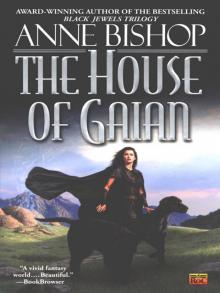 The House of Gaian
The House of Gaian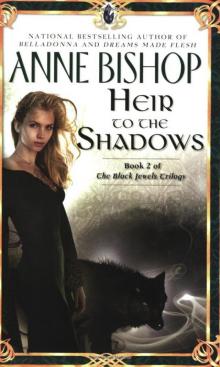 Heir to the Shadows
Heir to the Shadows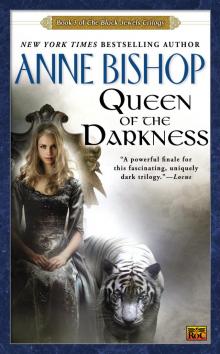 Queen of the Darkness
Queen of the Darkness Shaladors Lady
Shaladors Lady Written in Red
Written in Red Lake Silence
Lake Silence The Voice
The Voice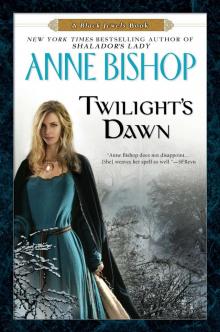 Twilights Dawn
Twilights Dawn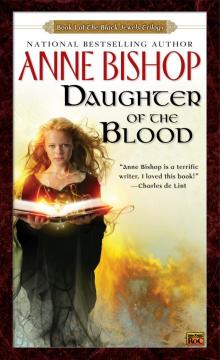 Daughter of the Blood
Daughter of the Blood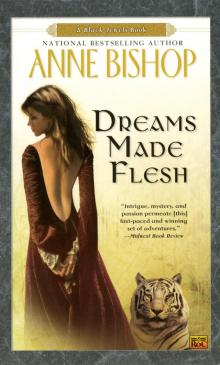 Dreams Made Flesh
Dreams Made Flesh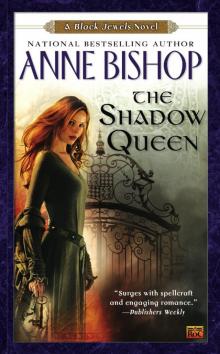 The Shadow Queen
The Shadow Queen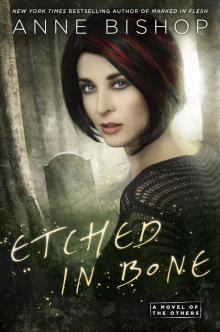 Etched in Bone
Etched in Bone Wild Country
Wild Country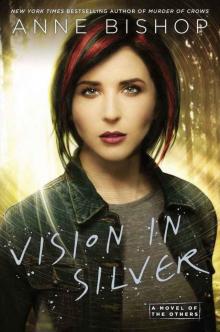 Vision in Silver
Vision in Silver Sebastian
Sebastian Shadows and Light
Shadows and Light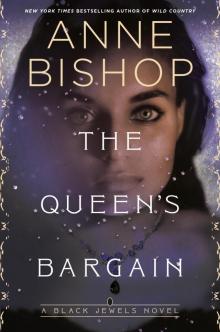 The Queen's Bargain
The Queen's Bargain Bridge of Dreams
Bridge of Dreams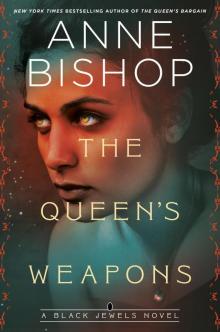 The Queen's Weapons
The Queen's Weapons Pillars of the World
Pillars of the World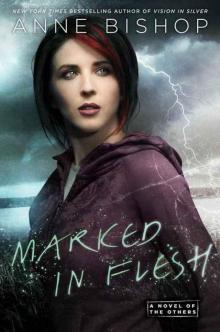 Marked in Flesh
Marked in Flesh Heir to the Shadows dj-2
Heir to the Shadows dj-2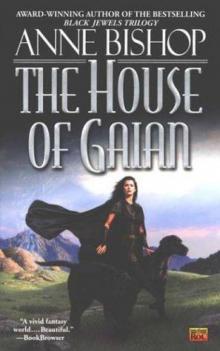 The House of Gaian ta-3
The House of Gaian ta-3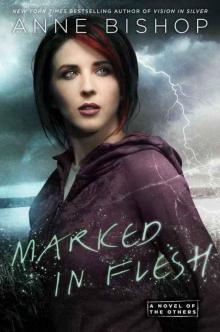 Marked In Flesh (The Others #4)
Marked In Flesh (The Others #4)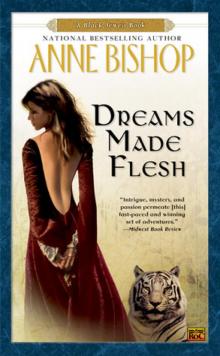 Dreams Made Flesh bj-5
Dreams Made Flesh bj-5 Written In Red: A Novel of the Others
Written In Red: A Novel of the Others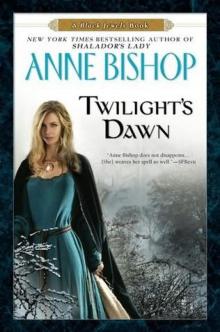 Twilight's Dawn dj-9
Twilight's Dawn dj-9 Shalador's Lady bj-8
Shalador's Lady bj-8 The Pillars of the World
The Pillars of the World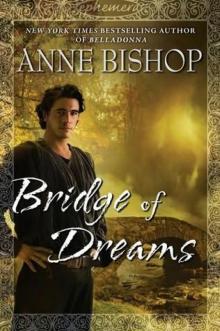 Bridge of Dreams e-3
Bridge of Dreams e-3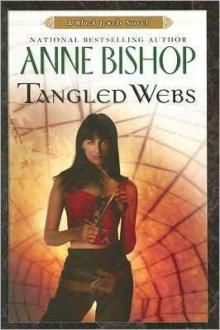 Tangled Webs bj-6
Tangled Webs bj-6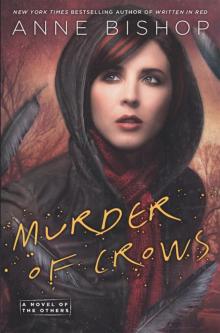 Murder of Crows: A Novel of the Others
Murder of Crows: A Novel of the Others Sebastian e-1
Sebastian e-1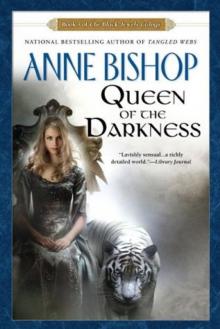 Queen of the Darkness bj-3
Queen of the Darkness bj-3 Belladonna e-2
Belladonna e-2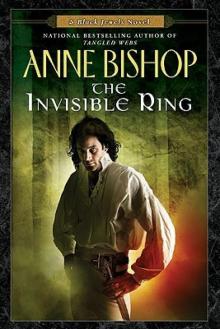 The Invisible Ring bj-4
The Invisible Ring bj-4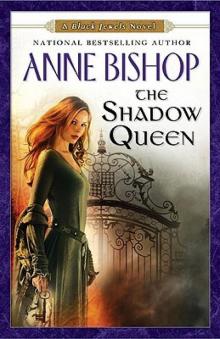 The Shadow Queen bj-7
The Shadow Queen bj-7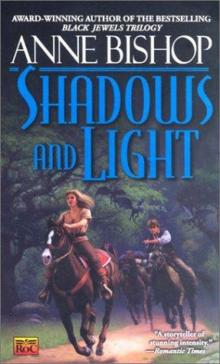 Shadows and Light ta-2
Shadows and Light ta-2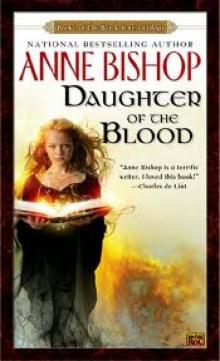 Daughter of the Blood bj-1
Daughter of the Blood bj-1 The Voice: An Ephemera Novella(An eSpecial from Roc)
The Voice: An Ephemera Novella(An eSpecial from Roc)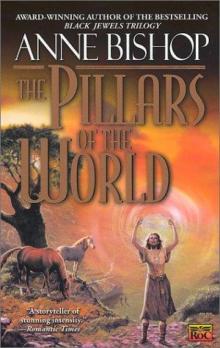 The Pillars of the World ta-1
The Pillars of the World ta-1